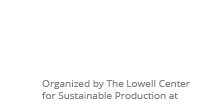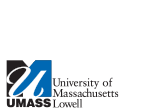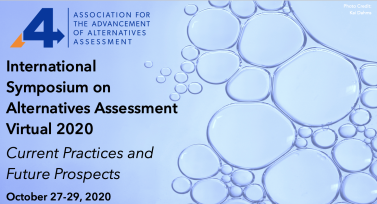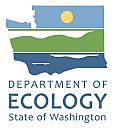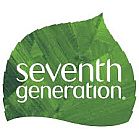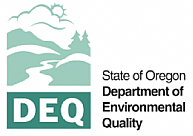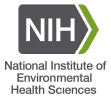2020 Virtual Symposium
Monday, October 28, 2020
Short Course: NURA

New Approach Methodology Use for Regulatory Application (NURA) in collaboration with the Association for the Advancement of Alternatives Assessment (A4) hosted two half day trainings to explore practical solutions for the safety assessment of cosmetics and consumer products. Lectures, discussions, and demonstrations helped attendees evaluate the advantages of new non-animal approaches and apply them to a range of consumer and occupational health needs. The first course introduced applied approaches to incorporate and customize read-across strategies for chemical assessments. The second course provided a deep dive into case-study illustrations of in vitro tools and Next Generation Risk Assessment.
All Short Course Recordings, Slides and other Materials available here.
Tuesday, October 27, 2020
Symposium Session 1 - Updates from Europe Part I: Programs advancing informed substitution
With the incorporation of the “substitution principle” into environmental law in Sweden in the 1970s, Europe has chartered the course for others to follow when it comes to strategic policies and programs to advance the substitution of hazardous substances. Today is no different. Within the last couple of years, a broad array of new programmatic and policy frameworks to support substitution have emerged. In Part 1 of this Updates from Europe series, we will learn about recent European Commission-level activities as well as unique efforts in individual Member States that are advancing informed substitution, including enhancing use of alternatives assessment approaches.
Moderator:
- Joel Tickner, University of Massachusetts Lowell
Speakers:
- European Chemicals Agency’s Substitution Strategy - Matti Vainio, European Chemicals Agency
- Swedish Centre for Chemical Substitution -Tonie Wickman, Swedish Centre for Chemical Substitution
- SubsportPlus - Micheala Clever, German Federal Institute for Occupational Safety and Health (BAuA)
Session Resources:
- ECHA’s Substitution Strategy Web Resources
- ECHA’s 2020 Report: Impacts of REACH Restriction and Authorisation on Substitution in the EU
- Swedish Centre for Chemical Substitution
- SubsportPlus
Symposium Session 2 - Industry experience implementing alternatives assessment and substitution Part I: Lessons learned from large multi-nationals
How is industry using the process of alternatives assessment to transition towards the use of safer alternatives? Once a safer and feasible alternative is identified, what real-world challenges and opportunities are revealed when implementing substitution decisions? In Part I of this series, we will hear case examples from multi-nationals regarding their alternatives assessment/informed substitution experience. Through presentations and group discussion, the session will reveal critical factors to help optimize the success of a given substitution initiative given varying business, policy and value chain positions. We will also hear recommendations from industry actors regarding needs and opportunities for mainstreaming the use alternatives assessment/informed substitution practices into business operations.
Moderator:
- Cory Robertson, Hewlett Packard
Panelists:
- Joel Tenney, Israeli Chemicals
- Kaj Johnson, Method
- Dhruv Raina, Tarkett
Session Resources:
Wednesday, October 28, 2020
Symposium Session 3 – Updates from Europe Part II: Safe-By-Design
In this Part 2 of our Updates from Europe series, we will dive deeper into the “Safe-by-Design” approach. This approach is recently being promoted by European authorities and others as a way to integrate safer chemical design with considerations of climate and circularity - and its connection to the substitution program and policy landscape in the European Union.
Moderator:
- Peter Fantke, Technical University of Denmark
Speakers:
- Safe Chemicals Innovation Agenda - Ronald Flipphi, Dutch Ministry of Infrastructure and Water Management
- SusChem – Vivi Filippousi, CEFIC
- Horizon Europe 2020 and Beyond - Søren Bøwadt, European Commission, DG for Research and Innovation
Session Resources:
- 2018 Report: Safe Chemicals Innovation Agenda
- SusChem’s 2019 Report: Strategic Innovation and Research Agenda: Innovation Priorities for EU and Global Challenges
- EU Commission’s 2020 Chemical Strategy for Sustainability
- Non-paper on Safe by Design
- 2020 EU Research & Innovation Days Sustainability by Design Panel
Symposium Session 4 – Industry experience implementing alternatives assessment and substitution Part II: Lessons learned from small business users of chemicals
Small and medium-sized enterprises (SMEs) are often downstream chemical users without significant in-house expertise to pursue evaluating, identifying and implementing substitution options. In Part 2 of our series on Industry experience implementing alternatives assessment substitution, we will hear from SMEs and the unique substitution programs that are supporting them. Presentations and group discussion will reveal tools and strategies that are of most benefit to SMEs to support their informed substitution efforts, especially considering cultural contexts and environmental justice considerations in which many small businesses operate. We will also hear recommendations regarding needs and opportunities for mainstreaming the use alternatives assessment/informed substitution practices into the business operations of SMEs.
Moderator:
- Pamela Eliason, Massachusetts Toxics Use Reduction Institute
Panelists:
- Scott Song, Family Dry Cleaners
- Jamie delos Santos, Burien Auto Rebuild
- Adam Pearson, Merrimack Ales
Session Resources:
TURI Resources
- Dry Cleaning Resources (alternatives assessments, videos, case studies, training videos)
- Auto Shop Resources (videos, case studies, other resources)
- Brewery Resources (alternatives assessments, videos, case studies)
King County Hazardous Waste Management Resources
- Technical reports on dry cleaning, including converting shops from PERC to professional wet cleaning
- Business Incentive Programs, including the financial incentive program for PERC dry cleaners
- Technical reports on autobody painting, including converting shops from solventborne to waterborne basecoats
Thursday, October 29, 2020
Strategies and tools to support decision-making in alternatives assessment: Learning from practitioners about what works
Decision-making in alternatives assessment can be a challenging task. There is no “correct” strategy to make decisions under conditions of uncertainty or when navigating trade-offs. However, over the years, tool developers and some alternatives assessment frameworks, including the 2014 U.S. National Academies, A Framework to Guide Selection of Chemical Alternatives have outlined various approaches. Yet what works in practice given the real-world circumstances when decisions are being made? Part 1 of this session will feature practitioners’ experience and strategies used to make decisions given uncertainties and data gaps and how these uncertainties are communicated. Part 2 takes on the topic of trade-offs in the assessment, for example, navigating different hazard levels for multiple endpoints within the hazard assessment component, or navigating trade-offs between performance, exposure, and hazards. Both Part 1 and Part 2 will feature brief presentations by practitioners and the majority of the time will be used to zero-in on the benefits and challenges of various approaches, bringing in lessons learned from our broader A4 community. This session will be highly discussion-oriented, so bring your experience to the virtual conference room!
Symposium Session 5 - Part I: Considering Uncertainty: Real-world strategies to make decisions
Moderator:
- Tim Malloy, University of California Los Angeles
Panelists:
- Martin Wolf, Seventh Generation
- Tom Lewandowski, Gradient
- Shari Franjevic, Clean Production Action/GreenScreen®
Symposium Session 6 - Part II: Considering Trade-offs: Real-world strategies to make decisions
Moderator:
- Molly Jacobs, University of Massachusetts Lowell
Panelists:
- Martin Wolf, Seventh Generation
- Tom Lewandowski, Gradient
- Matteo Kausch, Cradle to Cradle Products Innovation Institute
- Mallory McMahon and Heather McKenney, Honest Co.
Please note, Session 6 was not recorded as requested by one of our presenters
Thank You Sponsors
Thank you to our sponsors who made this event free for all participants.
|

